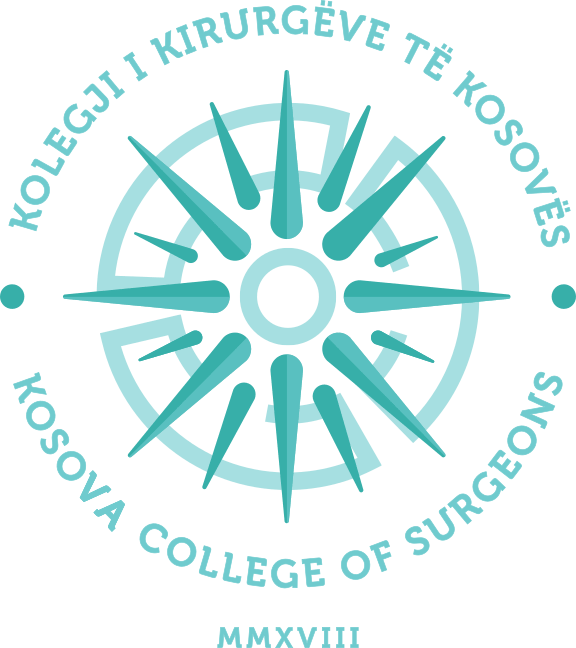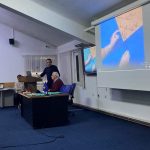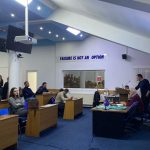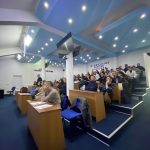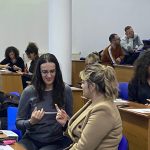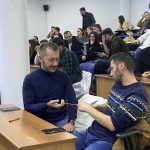Basic Course for Surgery Residents – “Module 2: Knot Tying”
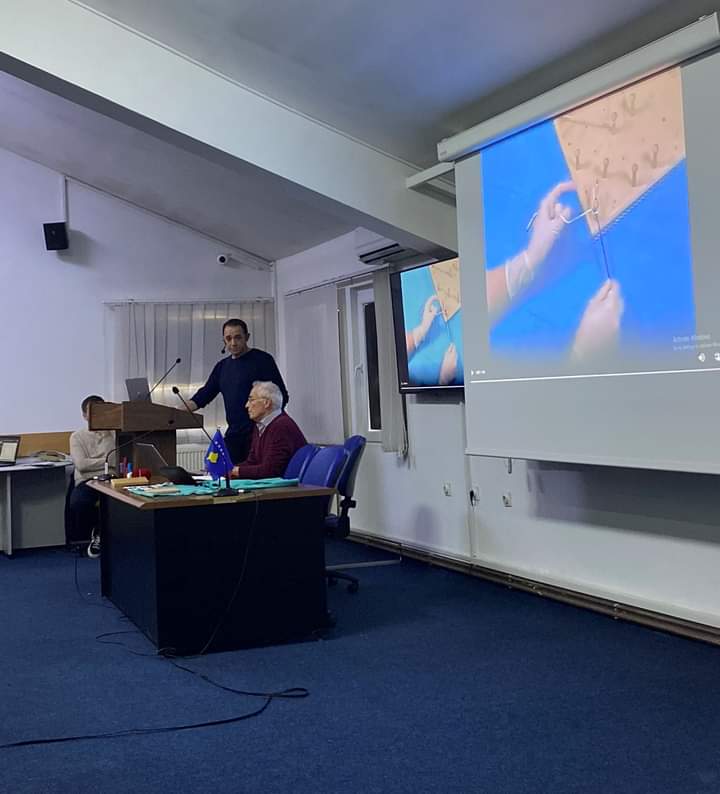
The Kosova College of Surgeons in cooperation with the Committee of the Residents of the KCS has continued the course on Basic Education of Surgical Residents – Phase 1, Core Skills, “Module 2: Tying Knots”, which is designed according to the model of the American College of Surgeons, (ACS/APDS Surgery Resident Skills Curriculum), and is part of a three-phase curriculum.
“Module 2: Knot Tying”, was presented by Dr. med. Hysni Jashari (MD, PhDc) and Dr. Hevzi Ademaj – a resident.
Prior to starting the lecture, a small test was also developed regarding the knowledge gained from the preliminary module “Aseptic and instrument identification”.
On this occasion, Dr. Sadik Llullaku, Executive Director of the Kosova College of Surgeons, presented the work of this institution, and the continuous contribution of the President of the KCS, Prof. Dr. Rifat Latifi.
This module, according to Dr. med. Hysni Jashari, MD, PhDc, provides an overview of tying three basic knots used frequently in surgery.
He emphasized the objectives of this module, pointing out that by the end of this training, they should be able to perform a series of basic knot-tying techniques, including:
- Two-handed knot tie – basic, under tension, slip knot
- One-handed knot tie – basic, under tension, slip knot
- Instrument tie
In addition to this written description, Dr. Jashari also mentioned the fact that there is a step-by-step module containing expert performance videos for several of the tasks available at the course page online.
With this, one of the main goals of the Kosova College of Surgeons is being fulfilled: the education of young doctors according to western professional standards.
Phase 1 – Basic Education, is designed to teach trainees 16 essential surgical skills in the early stages of their training, ranging from the principles of asepsis and ligation to basic laparoscopic skills and anastomoses.
This curriculum has recently been redesigned for educators and trainees to be more interactive, relevant, and comprehensive by implementing each relevant simulation.
Each of the 16 modules will be led by a specialist (who will serve as a mentor) and a resident. More than 70 residents are participating in this Course, and it will continue to be held every two weeks until the end of June 2023.
Implementation of Module 2: Knot Tying
